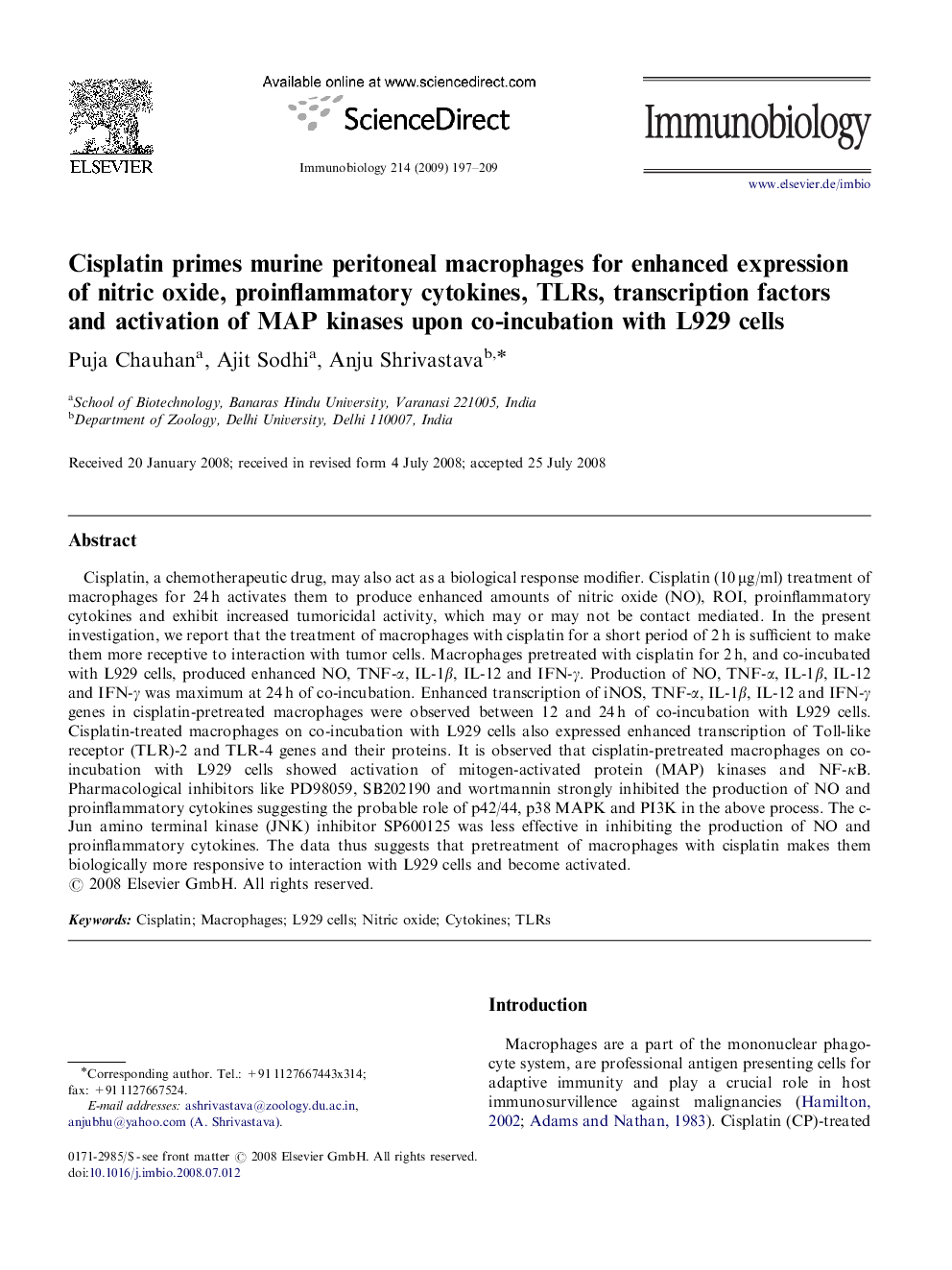| Article ID | Journal | Published Year | Pages | File Type |
|---|---|---|---|---|
| 2183877 | Immunobiology | 2009 | 13 Pages |
Cisplatin, a chemotherapeutic drug, may also act as a biological response modifier. Cisplatin (10 μg/ml) treatment of macrophages for 24 h activates them to produce enhanced amounts of nitric oxide (NO), ROI, proinflammatory cytokines and exhibit increased tumoricidal activity, which may or may not be contact mediated. In the present investigation, we report that the treatment of macrophages with cisplatin for a short period of 2 h is sufficient to make them more receptive to interaction with tumor cells. Macrophages pretreated with cisplatin for 2 h, and co-incubated with L929 cells, produced enhanced NO, TNF-α, IL-1β, IL-12 and IFN-γ. Production of NO, TNF-α, IL-1β, IL-12 and IFN-γ was maximum at 24 h of co-incubation. Enhanced transcription of iNOS, TNF-α, IL-1β, IL-12 and IFN-γ genes in cisplatin-pretreated macrophages were observed between 12 and 24 h of co-incubation with L929 cells. Cisplatin-treated macrophages on co-incubation with L929 cells also expressed enhanced transcription of Toll-like receptor (TLR)-2 and TLR-4 genes and their proteins. It is observed that cisplatin-pretreated macrophages on co-incubation with L929 cells showed activation of mitogen-activated protein (MAP) kinases and NF-κB. Pharmacological inhibitors like PD98059, SB202190 and wortmannin strongly inhibited the production of NO and proinflammatory cytokines suggesting the probable role of p42/44, p38 MAPK and PI3K in the above process. The c-Jun amino terminal kinase (JNK) inhibitor SP600125 was less effective in inhibiting the production of NO and proinflammatory cytokines. The data thus suggests that pretreatment of macrophages with cisplatin makes them biologically more responsive to interaction with L929 cells and become activated.
